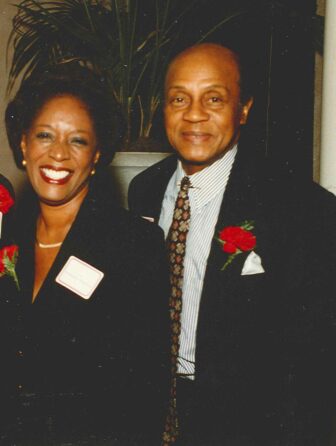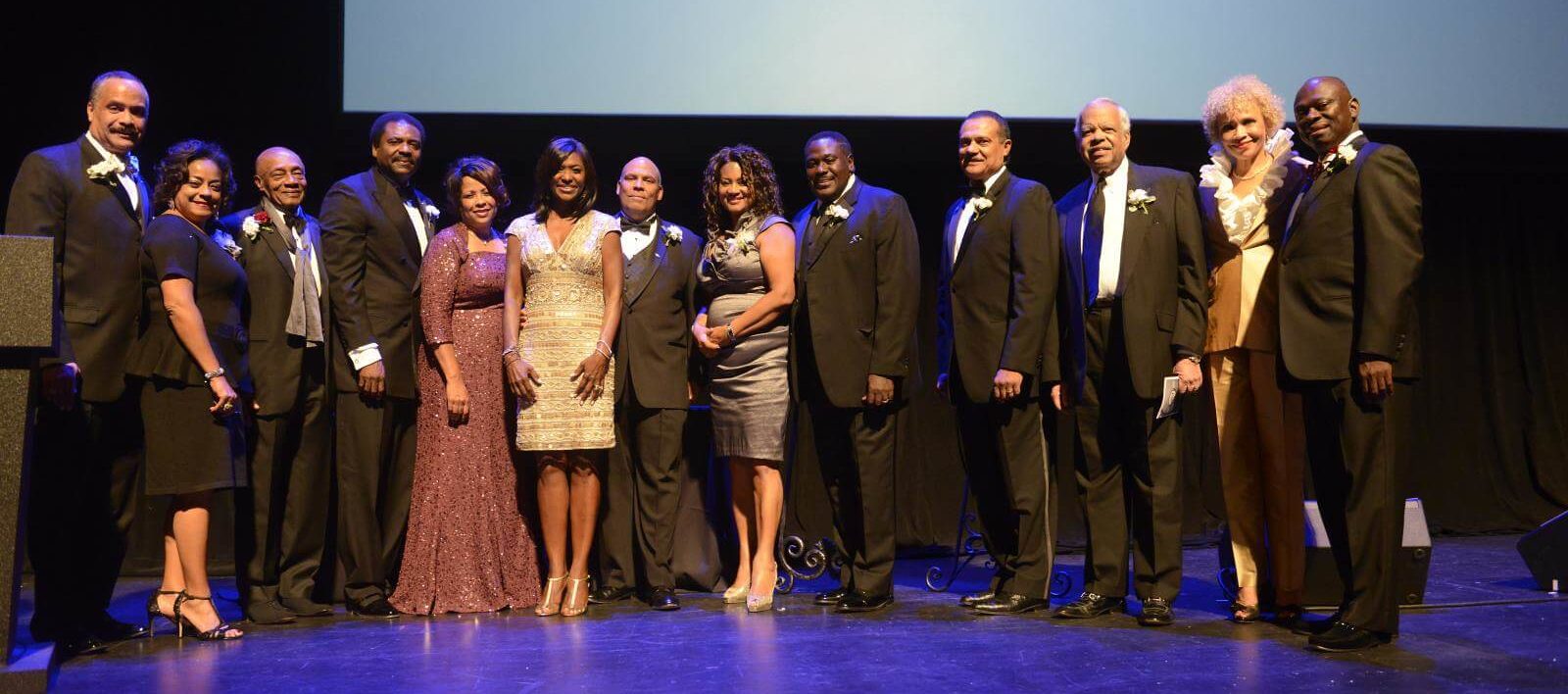A Warrior for the Community: Charmaine Chapman’s legacy in St. Louis endures
A vigilant advocate for the community. An unwavering commitment to helping people. Charmaine Chapman worked tirelessly to raise expectations and inspire the St. Louis community to help people.
“Over the last eight years, there has been no one who has had a greater impact, not only over the African-American community, but also the entire St. Louis community, than Charmaine Chapman,” John Jacob, 1998 African American Giving Initiative chair, said in a 2001 St. Louis American article.
In 1994, Charmaine came to St. Louis to serve as president and CEO of United Way of Greater St. Louis. She took the city by storm and changed how the St. Louis region participates in philanthropy. She lost her battle to cancer in 2001, but her legacy of compassion, humility and doing good endures in the community.
‘Whatever gifts you have, you need to share them’
Charmaine’s family ingrained philanthropy into her daily life from an early age.
As a teenager, Charmaine volunteered at a local community shelter in her native Pittsburgh, helped run workshops for children and sponsored events to earn money for a nonprofit business association.
“Both my brother and I were taught at a very early age about the importance of volunteering,” she once said in a newspaper interview. “It was the whole notion that whatever gifts you have, you need to share them with the community.”
Following in her father’s footsteps, she began her career as a social worker in 1962 and spent nearly three decades with United Way. She held various positions at United Way of the Dayton Area in Ohio and United Way of Southwestern Pennsylvania in Pittsburgh, and she was vice president of fundraising for United Way of America. Charmaine was the head of United Way in St. Paul prior to joining United Way of Greater St. Louis, where she was the first woman and first African American to lead the organization.
Her leadership was inspired by example
 In a 1994 St. Louis Post-Dispatch article, Charmaine said she was able to overcome barriers of gender and race because of the “sense of pride and sense of humor” her parents gave her. Charmaine’s warm and approachable leadership style inspired by example rather than demand.
In a 1994 St. Louis Post-Dispatch article, Charmaine said she was able to overcome barriers of gender and race because of the “sense of pride and sense of humor” her parents gave her. Charmaine’s warm and approachable leadership style inspired by example rather than demand.
Under her leadership, United Way of Greater St. Louis increased diversity among staff, the board of directors and its executive committee. Gary Dollar, Charmaine’s successor, explained that an open, inclusive and community-oriented United Way is just another legacy of Charmaine’s tenure. “[United Way] really belongs to the entire community,” he said in a 2001 St. Louis Post-Dispatch article.
With Charmaine at the helm, United Way also successfully expanded its regional footprint with the integration of three regional offices, which increased fundraising, lowered operating costs, and ultimately enabled the organization to provide more services and help more people.
“Words cannot describe the impact she had, the type of person she was. She was a remarkable person – brilliant and committed. Her passion was contagious,” said Dr. Donald Suggs, publisher of The St. Louis American and longtime supporter of United Way.
A United Way for everyone
Charmaine and Dr. Suggs created the African American Giving Initiative in 1994 as a way to encourage the African-American community to give back through United Way.
The black community was no stranger to philanthropy; they commonly supported organizations, particularly churches, but the data made it clear that money raised by United Way was disproportionately going to the black community.
Dr. Suggs says he and Charmaine believed it was possible to establish a new giving pattern among the newly emerged African-American middle class to help the community through United Way. They were right; in its first year, 90 donors raised $148,000. Within its first five years, the initiative had more than quadrupled the number of members to 442.

The African American Giving Initiative was the first of its kind among United Ways across the country.
“United Way allows everyone to participate in a very noble way,” said Dr. Suggs. “The community is going to be successful when people care about those who are less fortunate.” Being able to give back is important in a society where people find themselves in situations where they need help, he explained.
By 2000, the last full campaign Charmaine led as president and CEO, the initiative’s members raised $1.2 million. Today, the initiative, now known as the Charmaine Chapman Society, raises nearly $4 million annually and has over 600 members. In its 25 years of existence, it has raised over $42 million for the community.
A continued culture of unwavering caring and giving
“The Charmaine Chapman Society has helped the St. Louis community in immeasurable ways,” said Michelle D. Tucker, current president and CEO of United Way of Greater St. Louis. “The legacy left behind by Charmaine is one of unwavering commitment to our region and to the people of St. Louis. It’s a tremendous honor to carry the torch forward by helping to ensure the legacy continues for generations to come.”
The fellowship found in the Society is reflective of Charmaine’s warm and uplifting personality. It embodies a culture of caring and giving. With focuses on fostering the next generation of African-American leaders and making an impact on the region, members are empowered to encourage one another to answer the call to make the St. Louis region a better place to live for everyone.
Twenty-five years later, the Charmaine Chapman Society remains one of the most successful African-American giving groups in the country and serves as a model for other United Ways looking to build African-American engagement and support.
The Charmaine Chapman Society has opened many doors over the years; it showed the community the power of African Americans giving back, and it’s enriched the lives of thousands of people living in the St. Louis region.
Take action now:
- Learn more about the Charmaine Chapman Society
- Share this story with family and friends.
